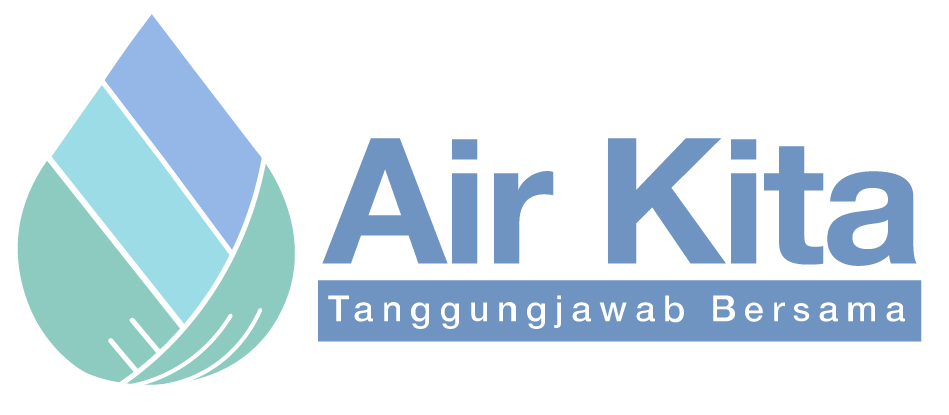Klang Valley Water Crisis: Causes and Impacts
by Muhammad Aleem
KUALA LUMPUR, 1 AUGUST 2024 – Recently, a widespread water crisis impeded daily activities across the Klang Valley. Forum Air EcoKnights via its campaign “Air Kita, Tanggungjawab Bersama ” has compiled information and gathered responses from the Duta Air Kita (ambassadors of AirKita), the National Water Services Commissions (SPAN) and the public on this matter.
Incident
On July 22, 2024, it was reported that there was an acidic smell coming from Kuang River. The reports were confirmed by the Selangor Water Management Authority (LUAS) as they also detected it in Kundang and Sembah River the following day. They traced back the foul odour to an acrylic recycling factory. The culprit, poly methacrylic acid (PMAA) leaked out of one of the tanks from the factory. The effluence would flow into Kundang, Sembah and eventually to the Selangor River. This poses a risk to residents downstream, in addition to four water treatment plants located along the river, which are the Rantau Panjang, Sungai Selangor Phase 1, Phase 2 and Phase 3 Water Treatment Plants. Thus, all four of them must temporarily shut down their operations to prevent the pollutant from reaching the water systems.
Impacts
Air Selangor has released its statement to address the closure of these four plants the same night. However, public opinion said that they were not notified. “There should be a notification system to inform us on the water cut,” said Irfan. Air Selangor quickly reopened operations incrementally and fully by Friday. Many local businesses were forced in a tight spot, especially areas nearby the pollution. The News Straits Time reported restaurants around Kuang River resorting to “purchase” water from neighbourhoods and using plastic utensils.
From the 7 regions that are affected, over a thousand residents are affected with varying degrees. “My area was not affected too much,” quote Erica from Damansara. “I still do need to purchase mineral water from the store as our drinking water system could not be used”. Irfan, a student from Bandar Puteri also mentioned the need to buy mineral water for cleaning dishes. “We didn’t want to waste the tank water because that’s for cleaning up”. In Petaling Jaya, senior citizens were affected the most from the water cut. Residents even opt to visit a relative’s house that is not affected by the water cut.
Actions
LUAS and the Ministry of Environment and Water (JAS) have swiftly done their part to mitigate it. After the initial report, LUAS has sent out a team to do intense monitoring of the quality of each river every half an hour. They also use activated carbon to dispel the smell and release water from dams to flush down the toxins.
News sources have quoted various acts and enactments; the LUAS Enactment 1999 and Water Services Industry Act 2006 to be used for the investigation, though it is not as simple. Agencies involved in this investigation have their respective jurisdictions to investigate under. “Upon completion, the findings will be reported to the Deputy Public Prosecutor (DPP), then they will decide the jurisdiction,” said Mr. Kirupakaran a/l Visuvalingam, Senior Director of Enforcement of SPAN. Two suspects were arrested to aid the investigation under the Environment Quality Act (EQA) 1974 (amended in 2024) with a maximum of 5 years in jail and RM 10 million compound to the factory, a statement released by Nik Nazmi Nik Ahmad, the Minister of Natural Resources and Environmental Sustainability of Malaysia last Friday.
Our role
The government has done its part to mitigate the river pollution from reaching the public to cause adverse health effects. Since 2019, efforts by all agencies have decreased the number of pollution-related incidents to our rivers with constant patrolling at high-risk areas.
There are disagreements on whether legislative measures that we have were equivalent to the losses. “Polluter-pay-principle (PPP) should be implemented as it will serve justice more effectively”, said Amlir Ayat, Acting President of EcoKnights. However, with the amendment of the EQA 1974, it is justified but it needs to be enforced.
“There should be a more systematic way to enforce through delegation of water bodies, mapping out penalties by respective authorities and effective communication with the public,” said Syuen Toh, cofounder of Alliance of River Three (ART!). Communities also must play an active role in this.


“The crucial element missing should be more participation among the citizens,” said Mohd Fadhli Rahmat Fakri, a research officer from University Malaya Sustainable Development Centre (UMSDC). Daily observations of the river, rating the quality of water and reporting for suspicious behaviour are some examples presented.
“Every member of society should be aware of the consequences of water pollution,” said Amlir. It should be noted that community effort alone is not enough and must be hand in hand with authority’s role. Reports must be taken seriously and the line of work to preserve our rivers must be sustainable.
ABOUT ECOKNIGHTS®
EcoKnights® is an impact-driven sustainability organisation whose mission is to impart sustainable impact to the country by delivering development and environmental interventions to various stakeholders across four main pillars. More information is retrievable at www.ecoknights.org.my
ABOUT FORUM AIR®
Forum Air is a body established to assist the National Water Services Commission (SPAN) under the Water Services Industry Act 2006. EcoKnights has been elected and registered as a body of the Water Forum in 2023 and 2024, and will carry out the duties and responsibilities as outlined under Section 70 of the Act. More information is retrievable at www.airkita.org.my
Sources:
https://www.facebook.com/airselangor/posts/930249569142353?ref=embed_POST
